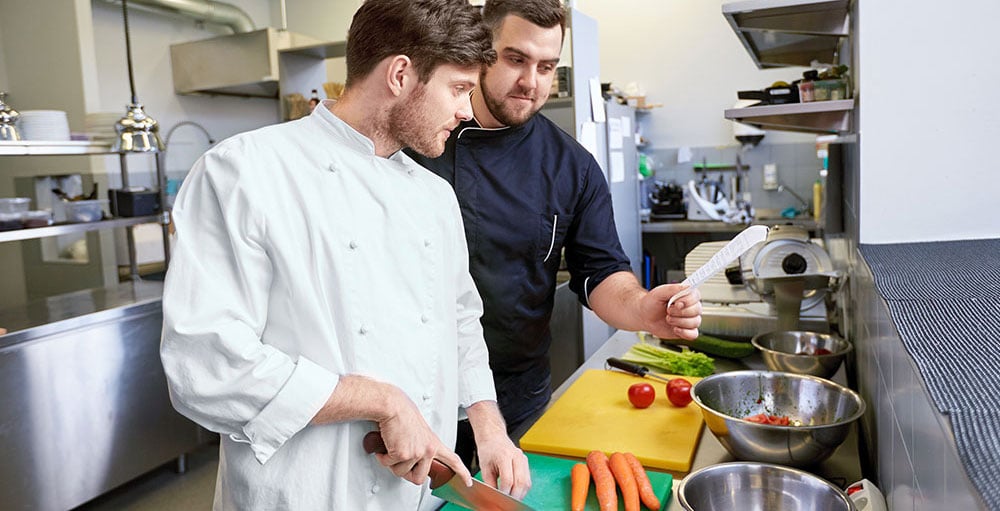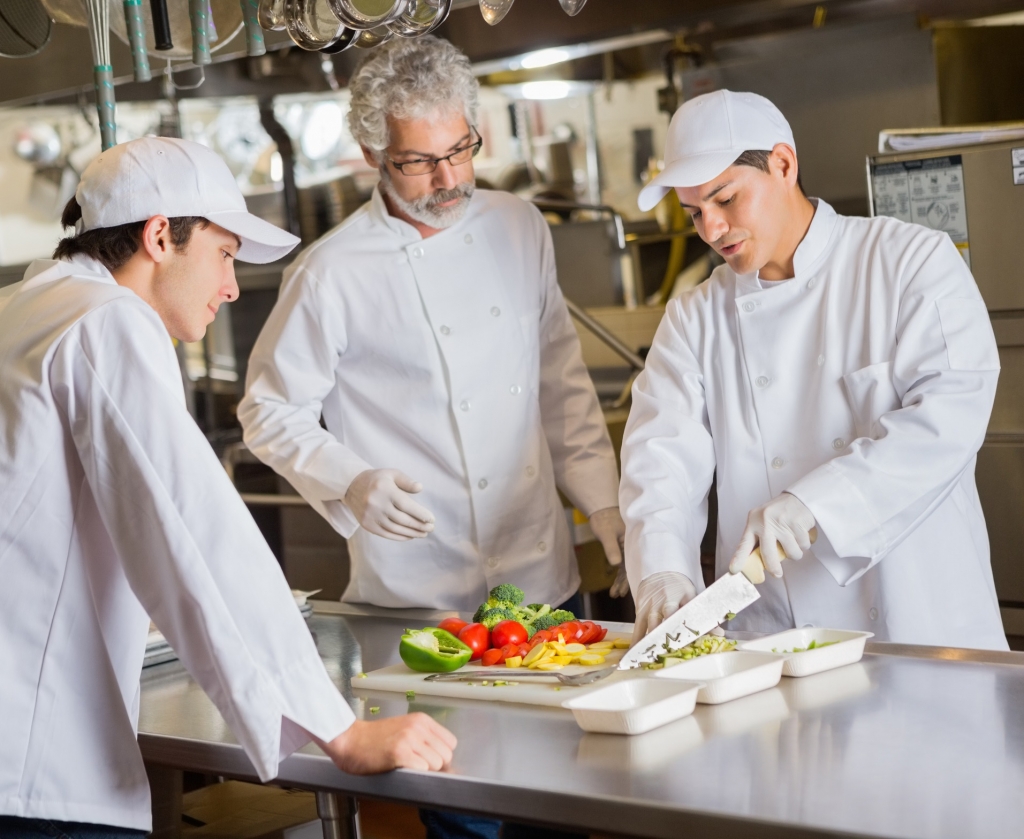Increase Your Task Opportunities: Why a Food Handler Certification Is a Must-Have in the Culinary Market
In today's competitive culinary landscape, the value of a food trainer certificate can not be overstated. This credential not just shows an individual's devotion to preserving food safety criteria however also works as a crucial asset in boosting employability within the market. As restaurants and food solution establishments increasingly focus on licensed staff, professionals geared up with this certification stand to obtain a considerable advantage. However, the implications of this certification expand past plain employability; they can likewise influence wage potential and job development. Checking out these facets reveals a much deeper understanding of why this certification is a calculated financial investment for cooking professionals.
Relevance of Food Safety
In the cooking industry, the importance of food safety can not be overstated. Polluted food can lead to major health problems, including foodborne diseases, which can affect people and lead to considerable liability for food establishments.
Food safety and security incorporates a variety of procedures, including correct food handling, storage space, cooking, and offering strategies. Abiding by these practices not just lessens the danger of contamination but additionally assists in adhering to local wellness guidelines. Proper training in food safety and security allows culinary specialists to acknowledge potential threats and carry out preventive actions successfully.
Additionally, a solid commitment to food safety can boost the credibility of a culinary facility, fostering consumer loyalty and business development. Consumers are significantly knowledgeable about food safety problems, making it vital for food trainers to show their adherence to ideal practices. Ultimately, prioritizing food safety and security is not just a governing requirement; it is a fundamental aspect of offering high quality food solution and shielding the well-being of clients.

Accreditation Needs
Food safety methods are just as reliable as the individuals executing them, making accreditation an essential step for food handlers in the culinary market. To get a Food Trainer Certificate, candidates should commonly complete a training program that covers vital subjects such as foodborne ailments, sanitation, personal hygiene, and secure food handling methods.
The majority of accreditation programs are created to suit numerous learning styles, providing choices for online, in-person, or hybrid styles. Participants should pass an assessment to show their understanding of the product, with a minimal passing rating often set at 70%.
The duration of training can vary, with some programs requiring only a few hours, while others may prolong over a number of days. After effectively finishing the training course and exam, prospects receive their certification, which is usually legitimate for 3 to 5 years, depending upon regional policies.
Renewal frequently involves retaking the program or finishing a refresher course program to make sure that food handlers remain upgraded on the current methods and standards. Conformity with these accreditation requirements not just boosts private knowledge yet likewise adds to the total security and quality of food solution operations.
Job Market Need
Exactly how has the job market for food trainers developed recently? The need for food handlers has actually substantially enhanced, largely driven by the expanding awareness of food safety and security and hygiene amongst consumers and regulatory bodies. With the surge of foodborne diseases, restaurants, providing services, and food production firms are focusing on the hiring of qualified food handlers to make certain conformity with health and wellness regulations. This change has caused a heightened emphasis on food safety and security training and accreditation as requirements for employment in the culinary sector.
Additionally, the increasing dining establishment industry, especially with the appearance of food delivery services and food trucks, has actually developed a wealth of job opportunities for food handlers. The requirement for skilled personnel who can safely prepare and manage food has actually come to be extremely important. servsafe food handler certificate. Furthermore, as culinary companies embrace a lot more rigid safety and security methods, the worth of a food trainer certificate has risen, making it an important asset for task candidates
Because of this, people getting in the culinary workforce are finding that obtaining a food handler certificate not just boosts their employability yet likewise places them favorably in a competitive job market that increasingly focuses on food safety and security and health requirements.
Advantages of Accreditation
Obtaining a food trainer certificate offers countless advantages that significantly boost an expert's standing in the cooking market. It demonstrates a dedication to food safety and health, which is critical in protecting against foodborne health problems. servsafe food handler certificate. This certification outfits individuals with crucial understanding regarding risk-free food handling techniques, including correct storage, cooking temperatures, and cleanliness treatments
In addition, having a food trainer certificate can boost a person's employability. Numerous companies visit the website focus on candidates with this qualification, seeing it as a sign of professionalism and trust and expertise. This can result in much better work opportunities and potentially greater incomes, as certified individuals are usually delegated with higher duties.
Moreover, the accreditation promotes a society of safety and security and accountability within the office. Preserving a food handler certificate can open up doors to additional academic and career advancement opportunities within the cooking area. servsafe food handler certificate.
Steps to Obtain Licensed
Obtaining a food handler certificate entails an uncomplicated procedure that can establish individuals on a path to boosted occupation prospects in the cooking market. The very first step is to discover a certified program or training supplier that uses food safety training courses. Several companies supply both in-person and online options, permitting versatility in knowing.

After effectively passing the exam, individuals will certainly get their food handler certificate, which is often legitimate for a details duration, typically three to 5 years. To preserve accreditation, it may be essential to finish refresher courses or retake the test before the expiration day.
Finally, it's essential to verify any kind of neighborhood or state-specific policies concerning food trainer qualification, as demands can vary. By adhering to these steps, people can acquire their accreditation and substantially improve their employability in the affordable culinary landscape.

Conclusion
Finally, obtaining a food handler certificate is important in the cooking sector, as it makes certain adherence to food safety requirements and basics boosts employability. With the expanding need for qualified personnel, this credential not only opens up doors to work opportunities yet additionally adds to career development and boosted making capacity. Eventually, a food trainer certification symbolizes a commitment to security and professionalism and trust, my response promoting a society of responsibility that benefits both employees and employers in the food service sector.